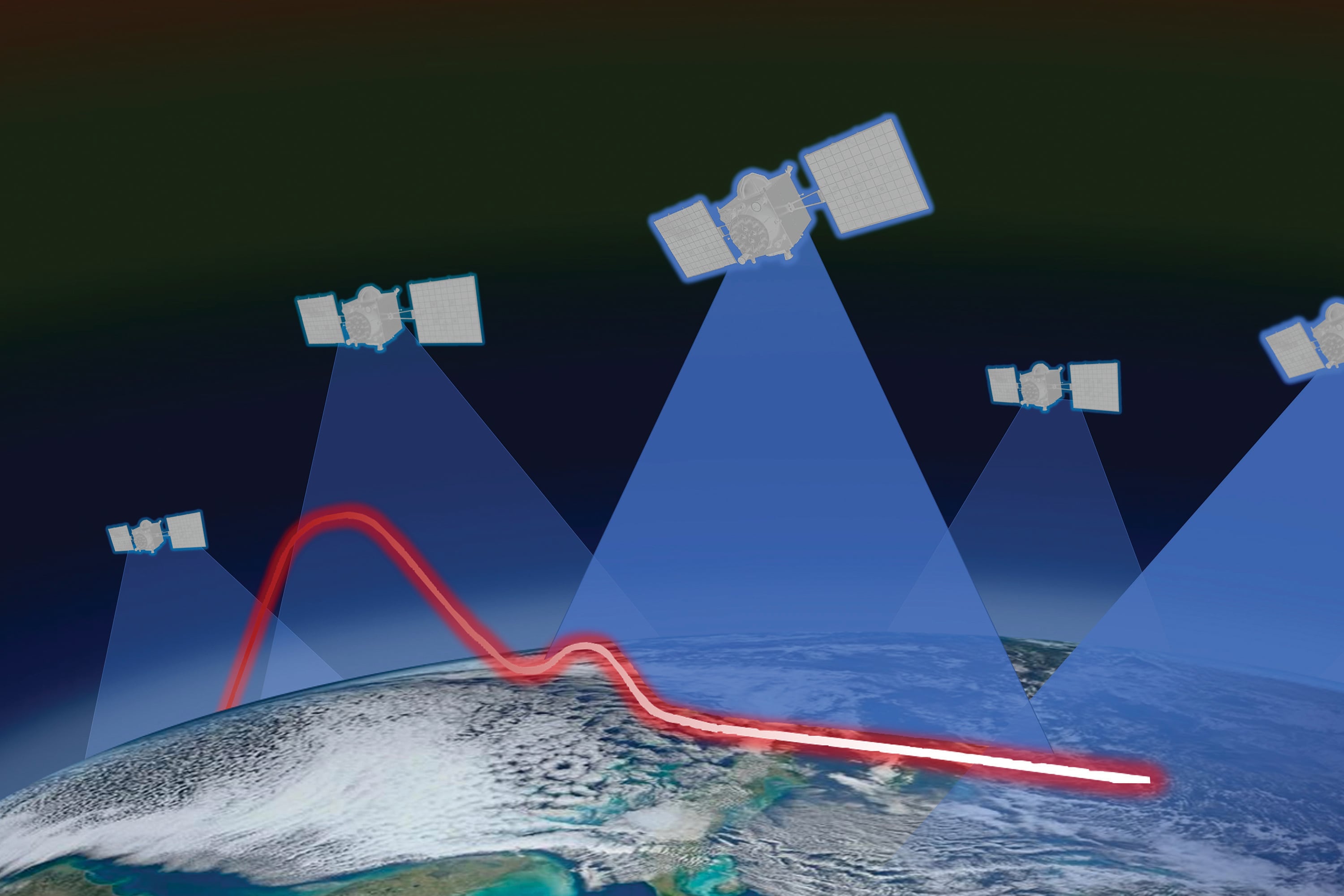WASHINGTON — The U.S. Space Development Agency has awarded Raytheon Technologies a $250 million contract to build seven missile-tracking satellites.
The satellites, which will feature a wide-field-of-view sensor that can detect and track hypersonic weapons from space, were paid for by a funding increase in the fiscal 2023 Appropriations Act and will launch as part of the agency’s Tranche 1 Tracking Layer. The contract was signed “late last week,” according to an SDA spokesperson.
“Developing a resilient and affordable proliferated satellite constellation in low-Earth orbit will improve our ability to track emerging threats like hypersonic missiles,” Dave Broadbent, president of space and command and control at Raytheon Intelligence and Space, said in a March 2 statement.
The missile-tracking space vehicles are a key component of the agency’s Proliferated Warfighter Space Architecture that is ultimately planned to consist of hundreds of satellites operating primarily in in low Earth orbit — about 1,200 miles above the planet’s surface. SDA plans to launch them in batches, or tranches, every two years, and it and will add new capabilities with each iteration. The first batch of tracking satellites, referred to as Tranche 0, are slated for launch later this month.
The $250 million from Congress adds to the $500 million SDA requested in its FY23 budget for missile warning and tracking satellites. The agency projects it will need another $3.2 billion for the effort between FY24 and FY27.
Raytheon’s contract increases the size of SDA’s Tranche 1 Tracking Layer from 28 satellites to 35. In July, the agency awarded contracts to Northrop Grumman and L3Harris Technologies to each build 14 satellites. Northrop received $617 million and L3Harris got $700 million to develop the spacecraft, which SDA expects to start launching in 2025.
Raytheon, along with four other companies that SDA has not named, bid for the original contract but were not selected. The agency did not initiate a new competition for the additional satellites, but used information from the early source selection to quickly select Raytheon. The company’s seven satellites will cost $40 million each.
Raytheon will build the wide-field-of-view sensor for its satellites, and its space electronics subsidiary, SEAKR Engineering, will provide the electronics payload. Another Raytheon subsidiary, Blue Canyon Technologies, will build the satellite bus. Both subsidiaries are based in Colorado.
Courtney Albon is C4ISRNET’s space and emerging technology reporter. She has covered the U.S. military since 2012, with a focus on the Air Force and Space Force. She has reported on some of the Defense Department’s most significant acquisition, budget and policy challenges.





